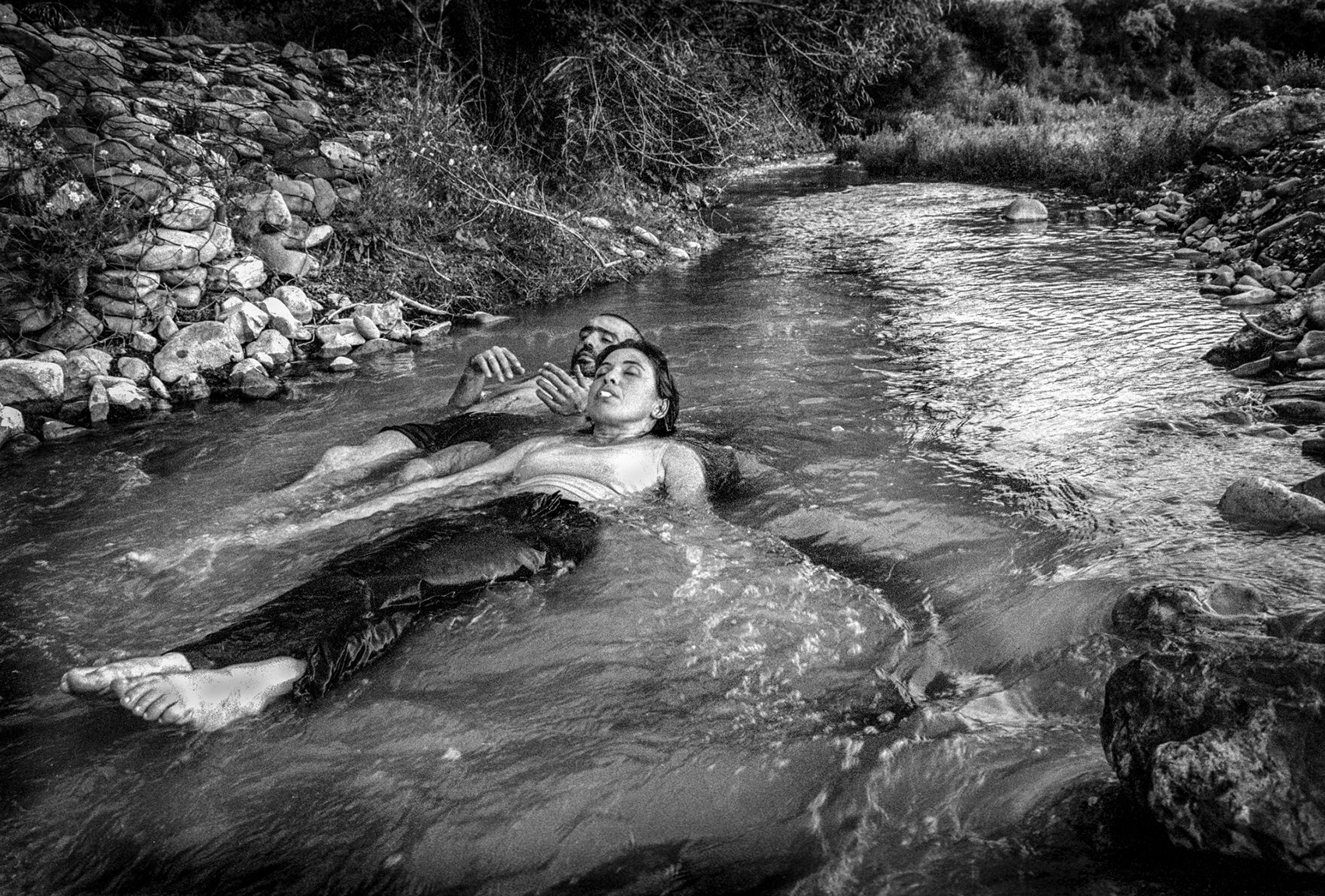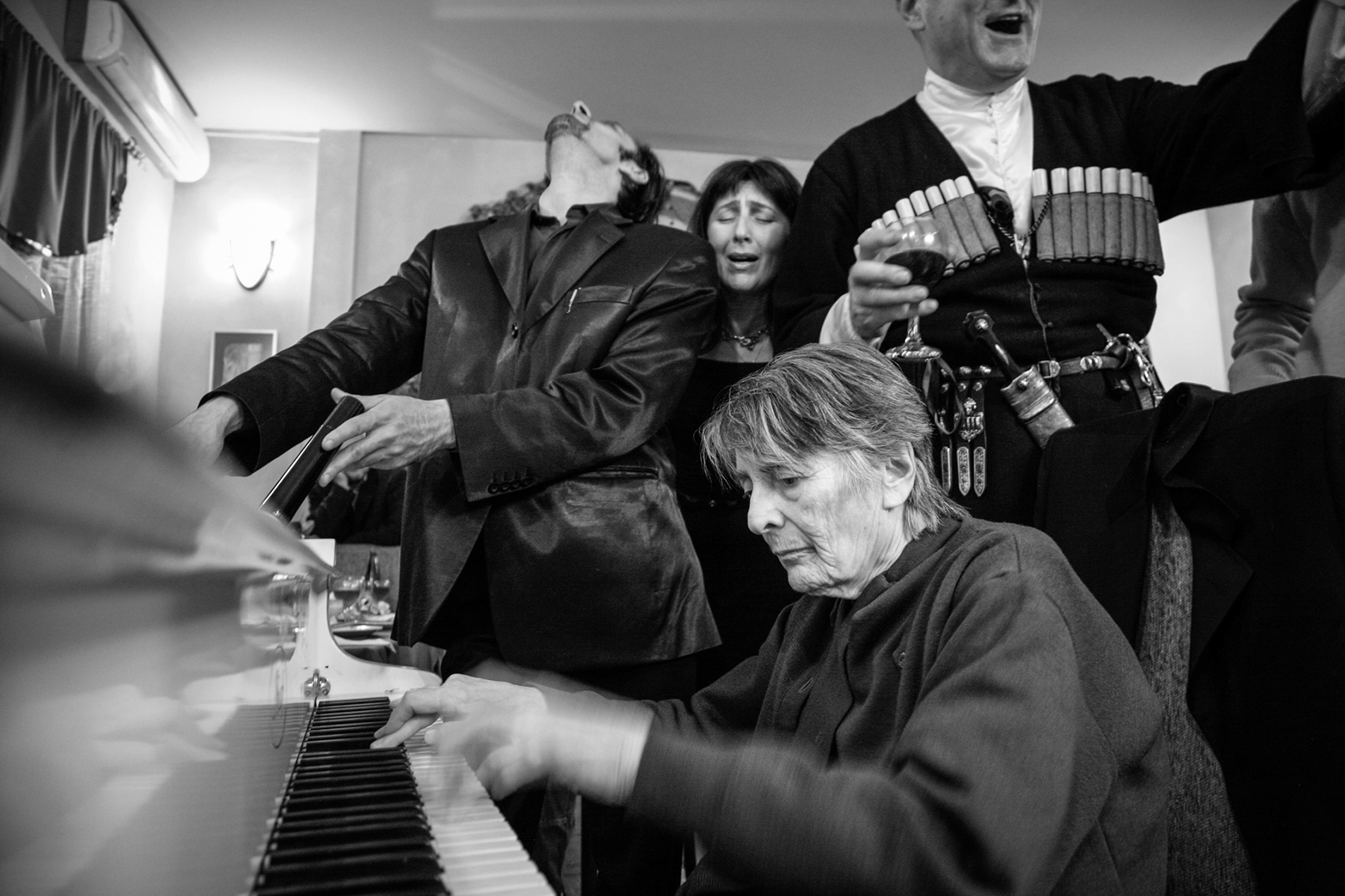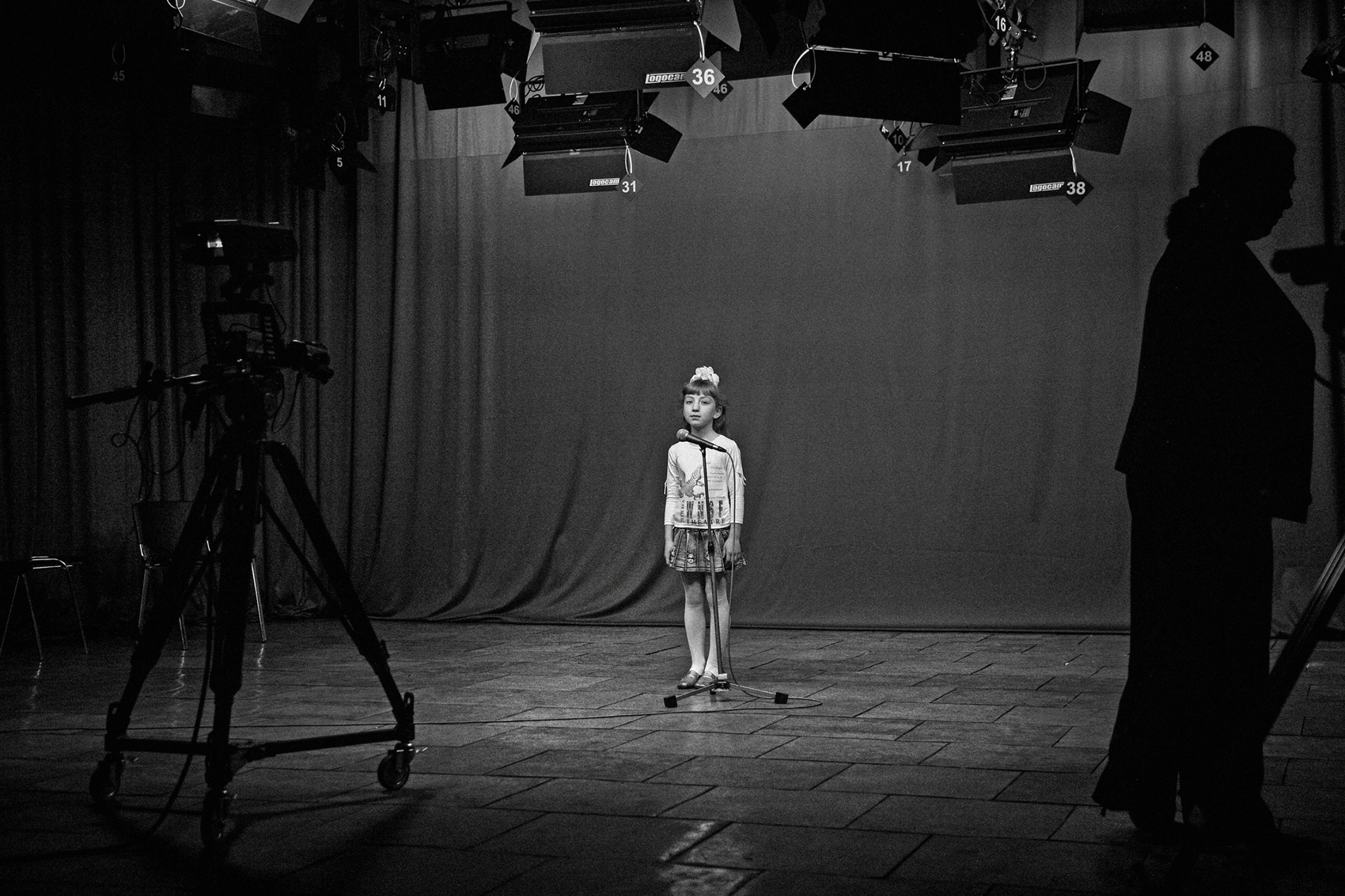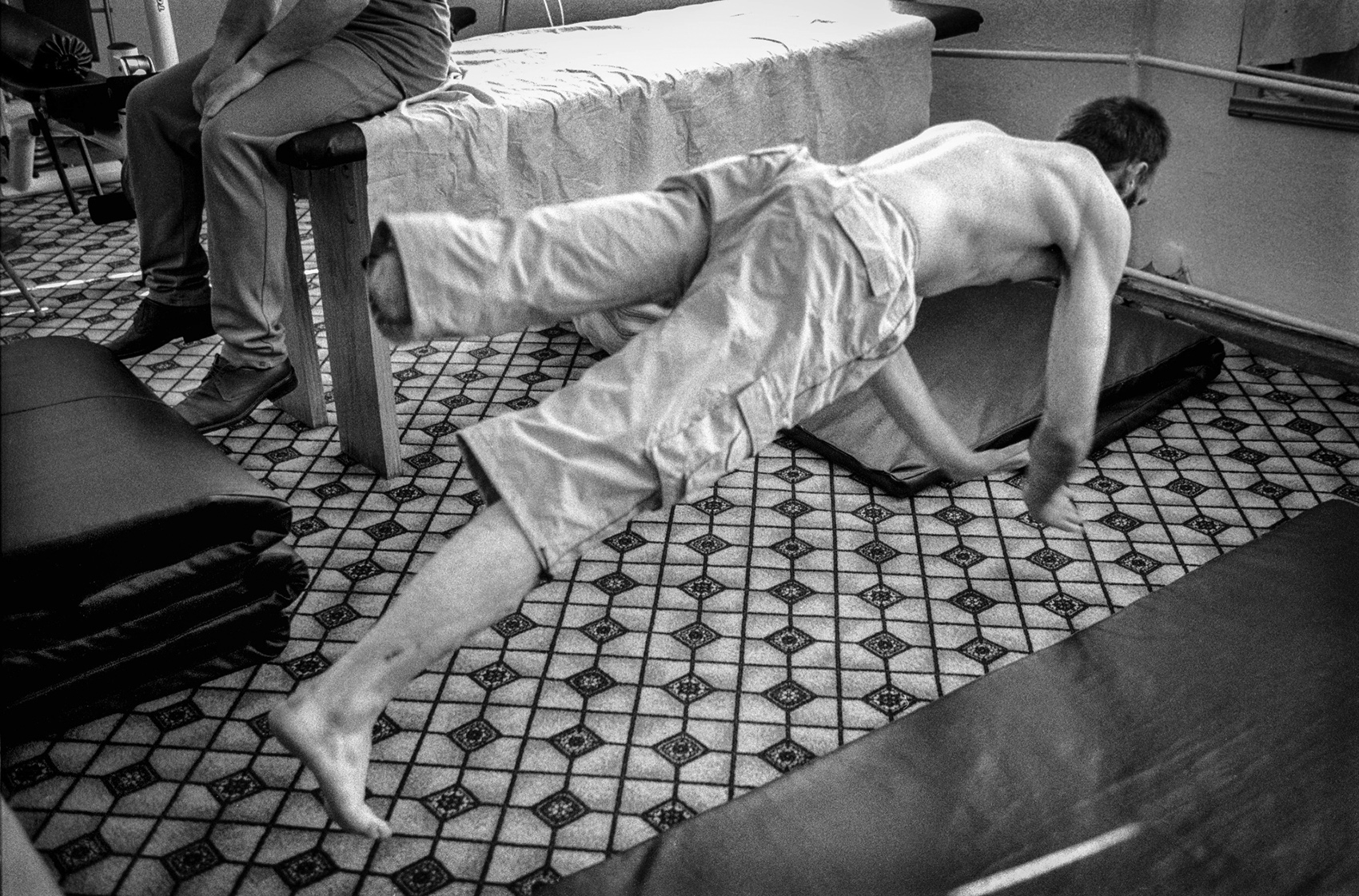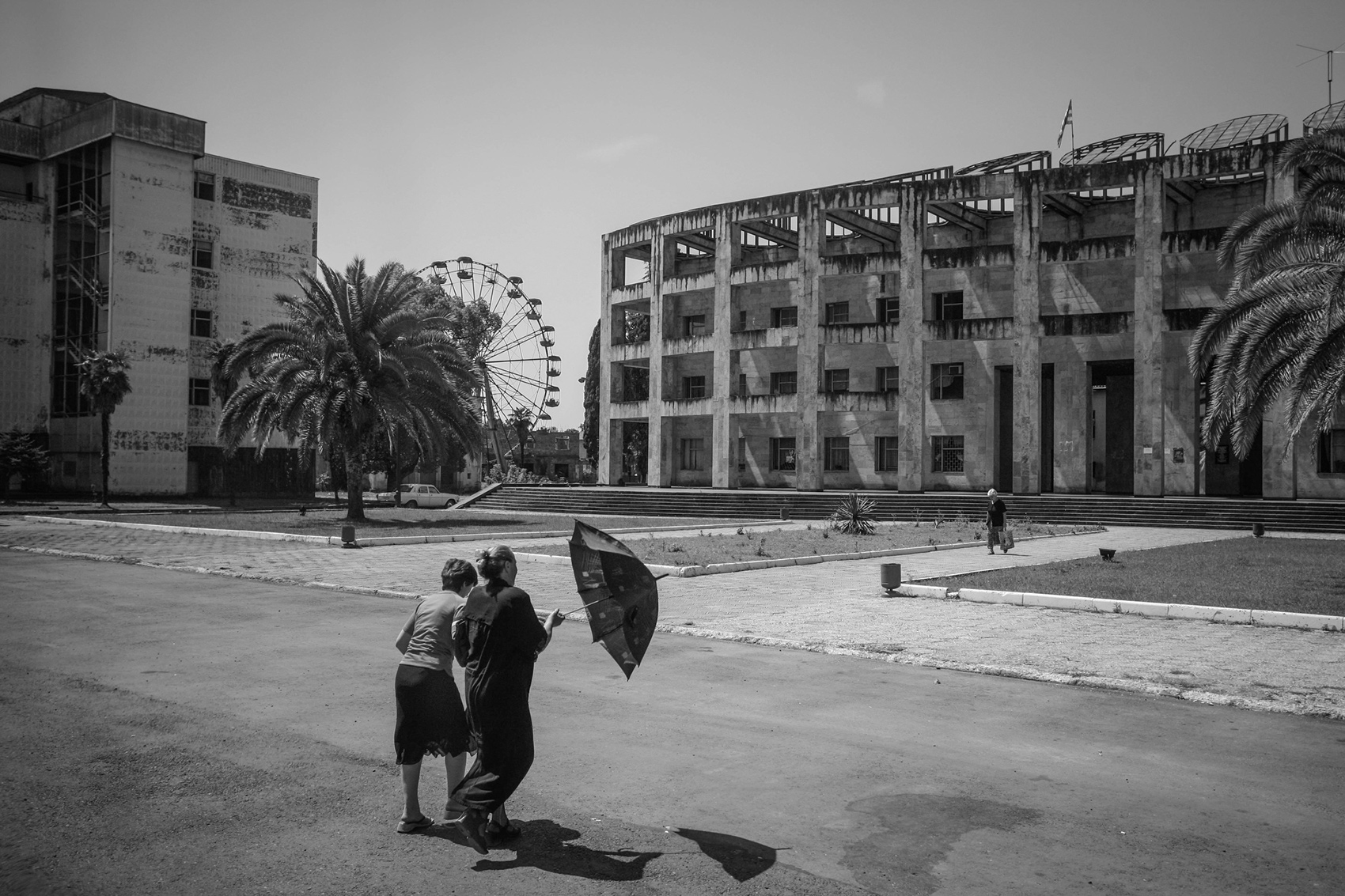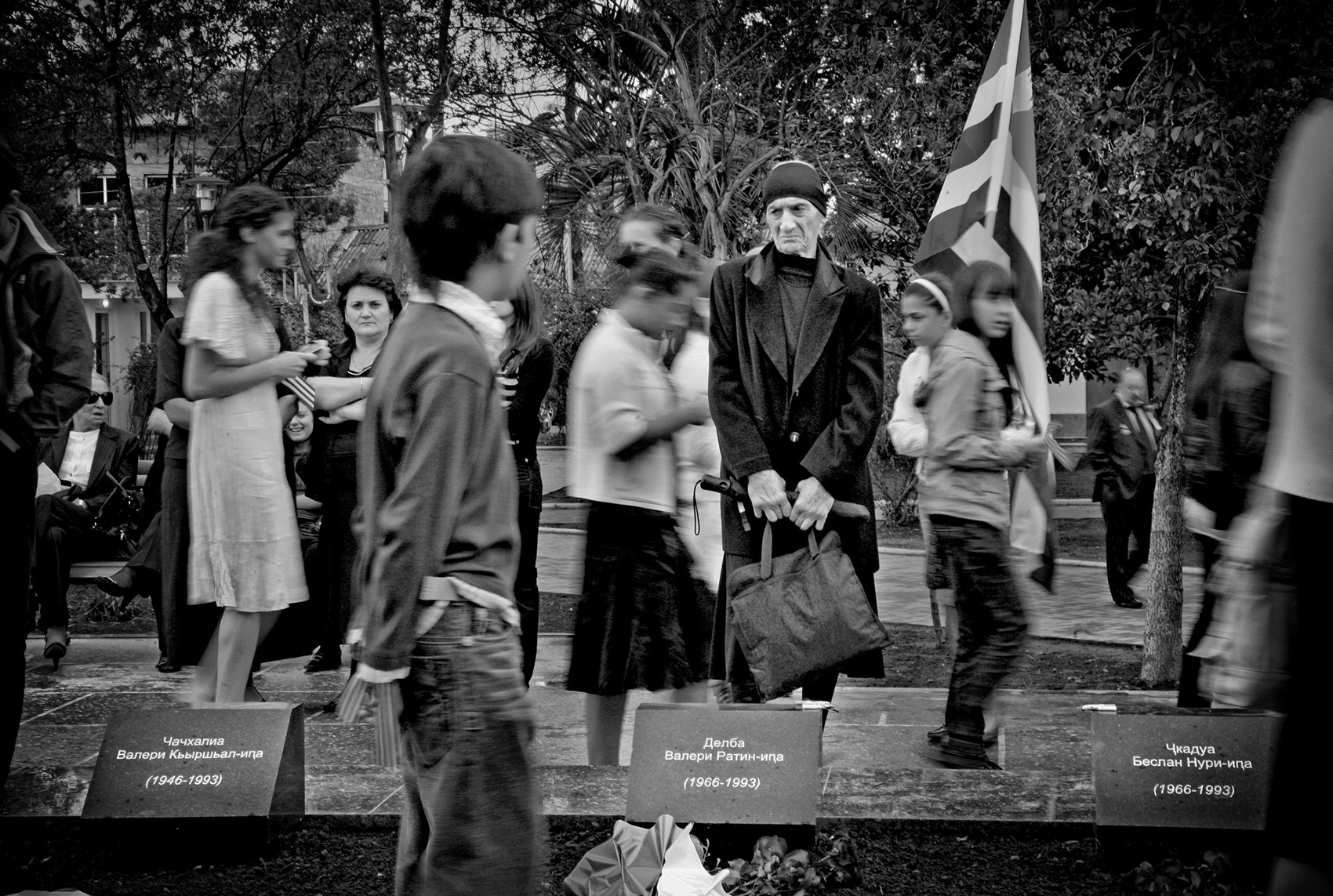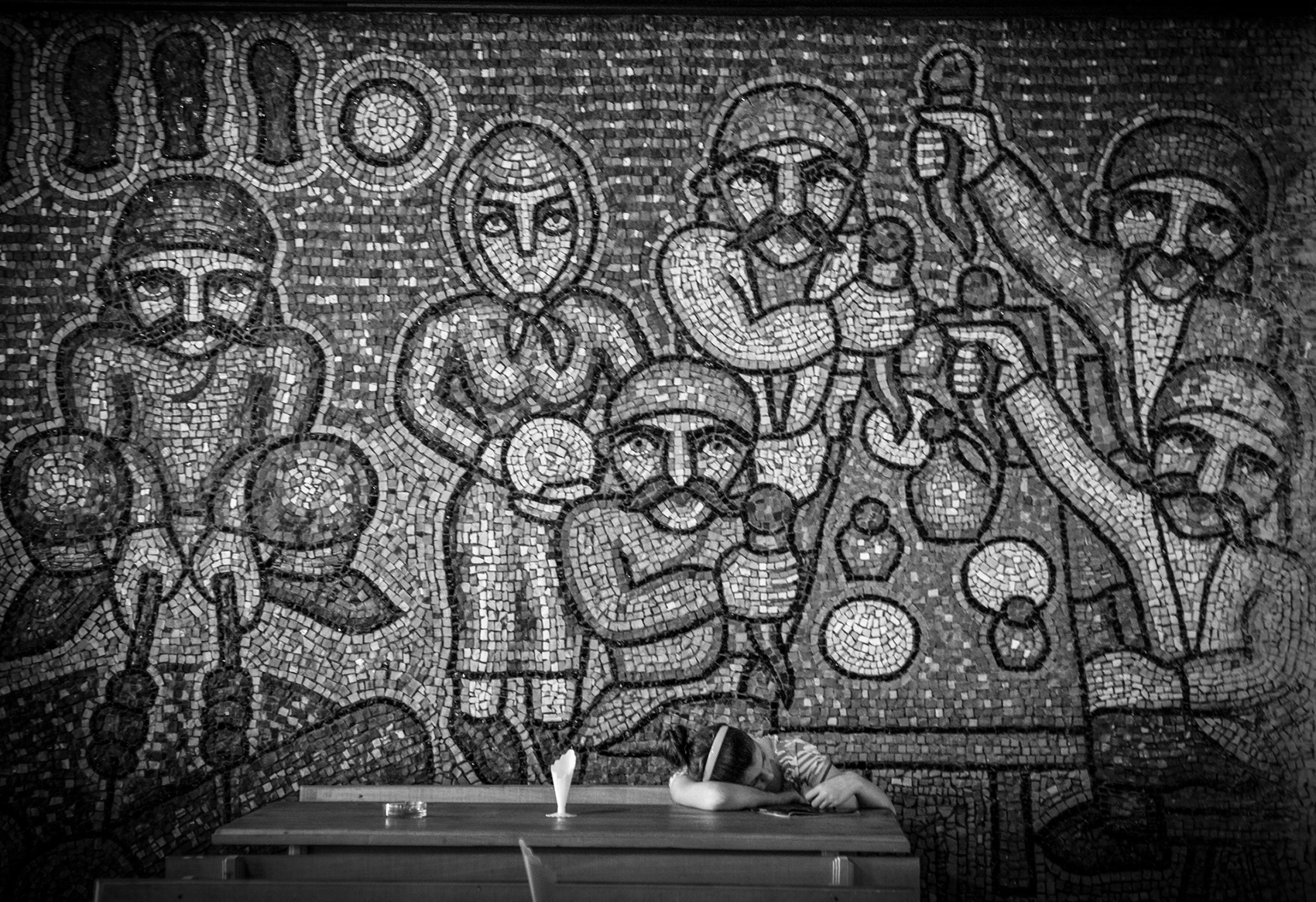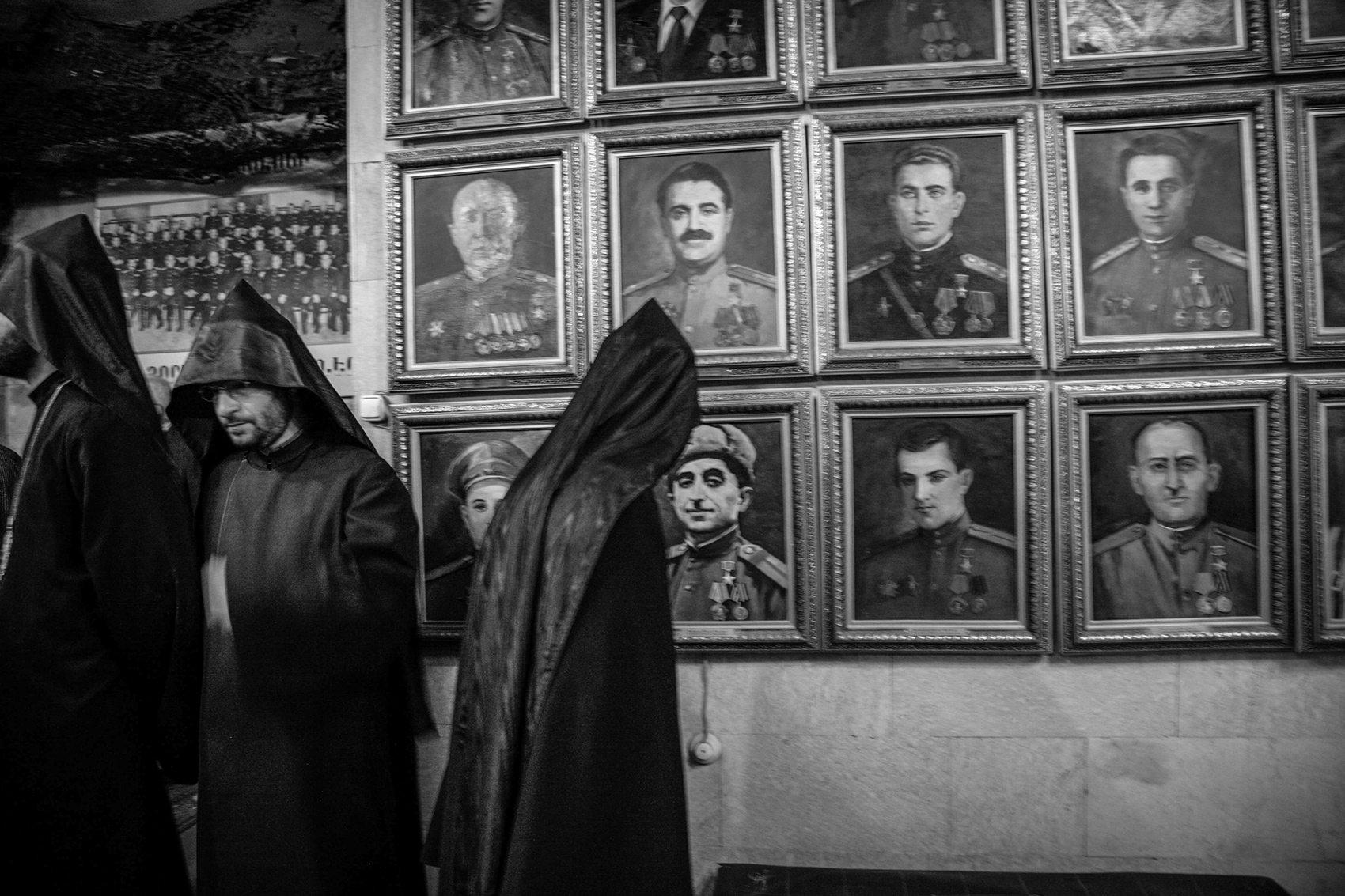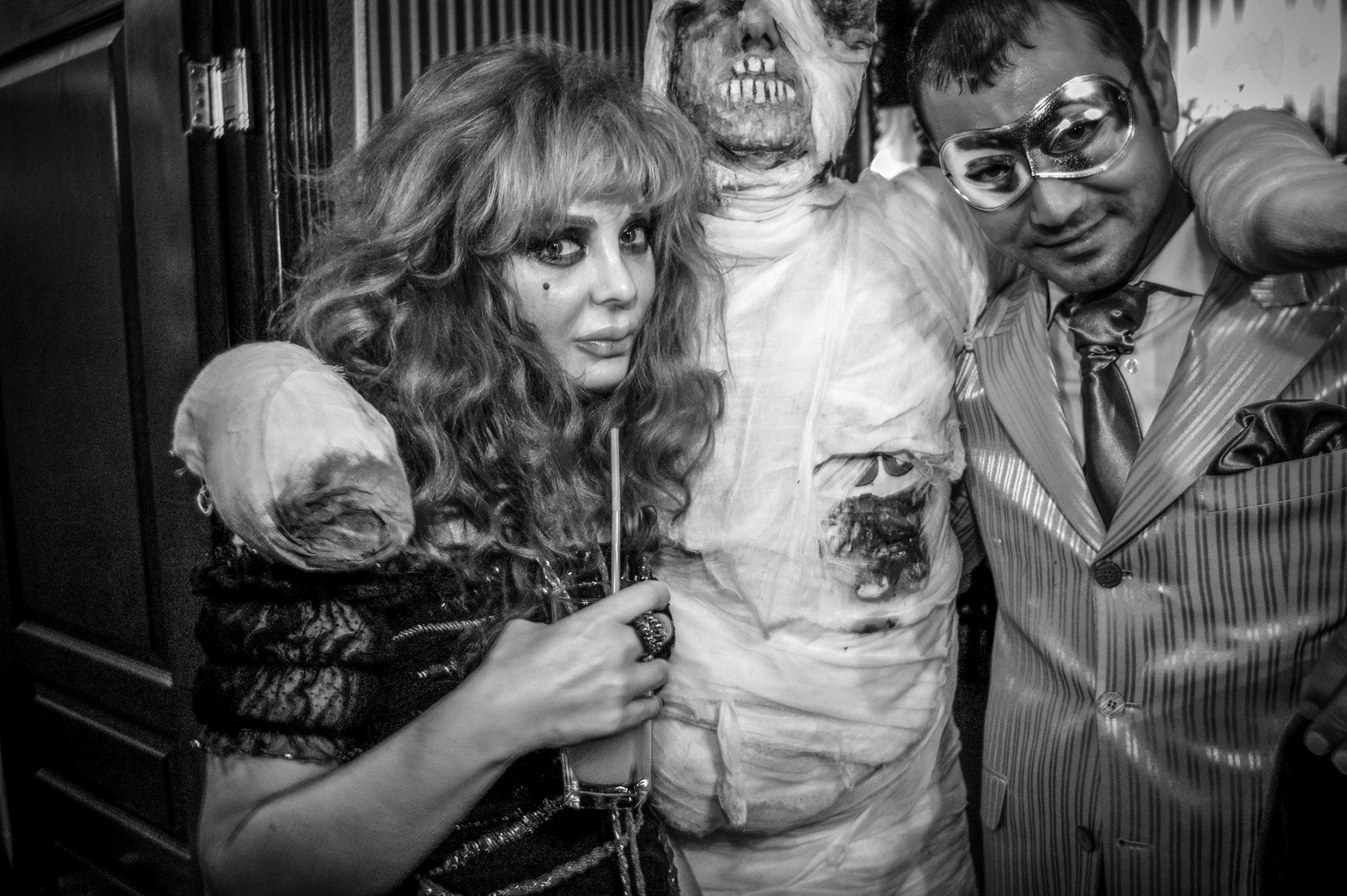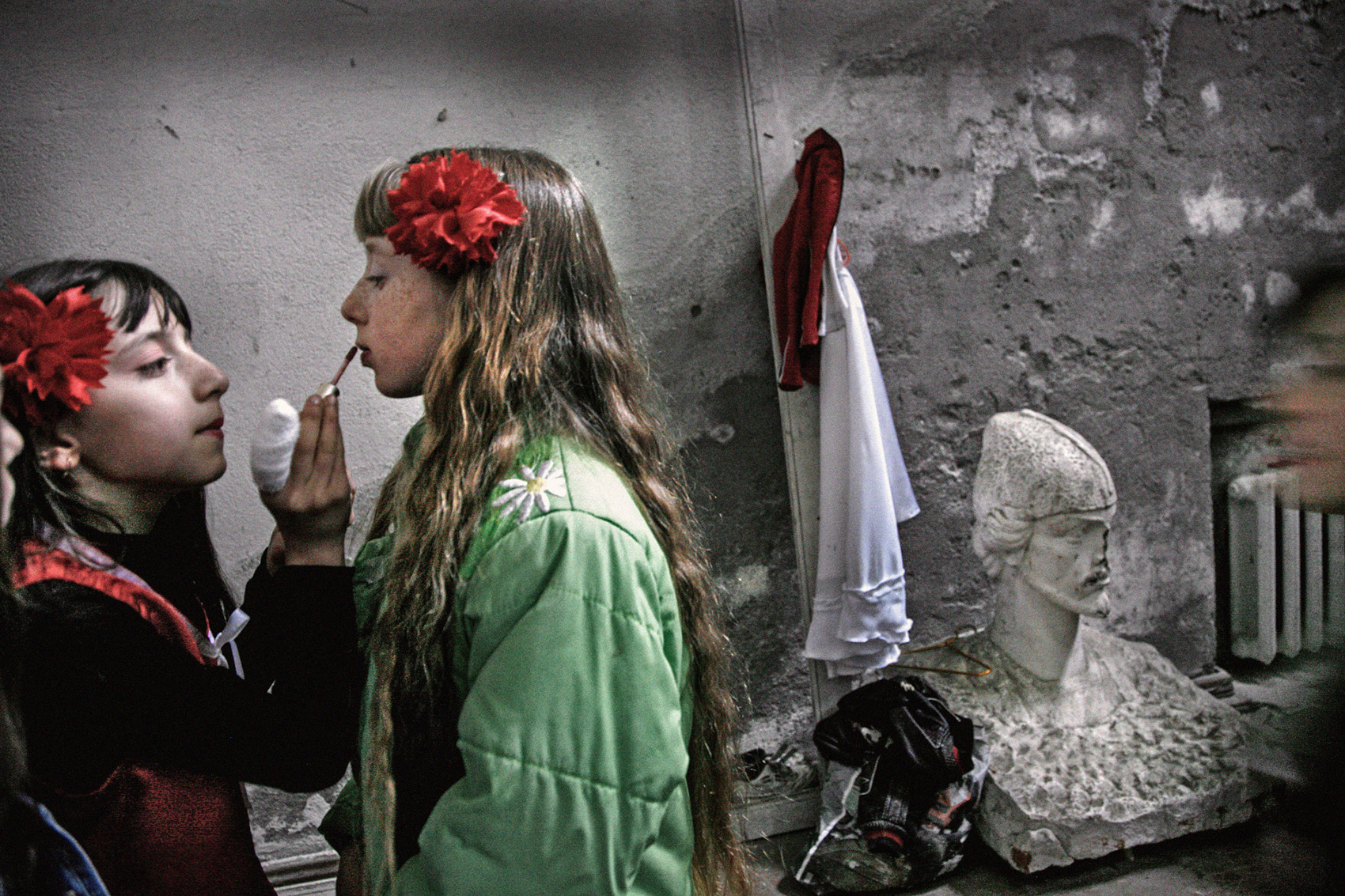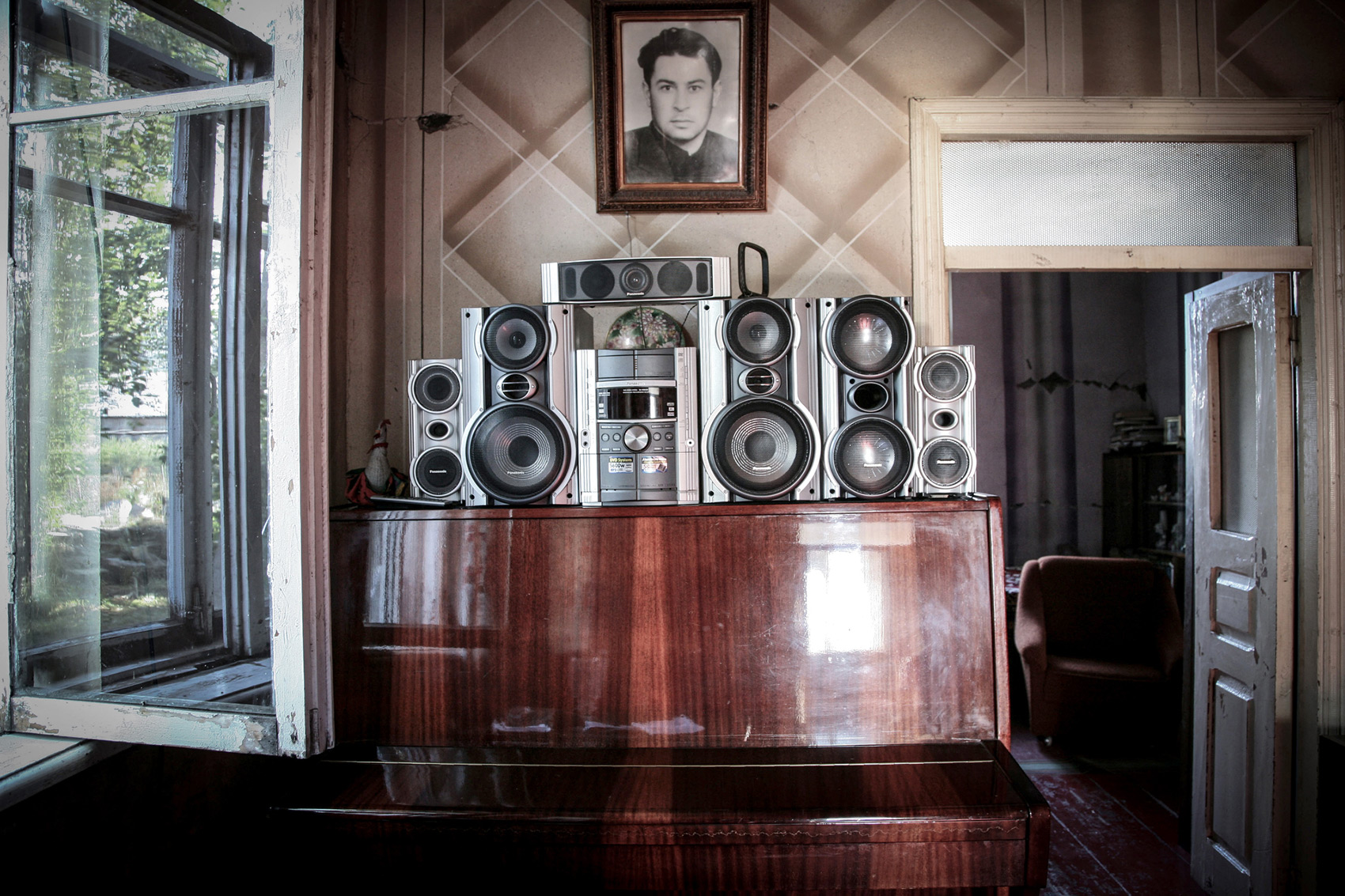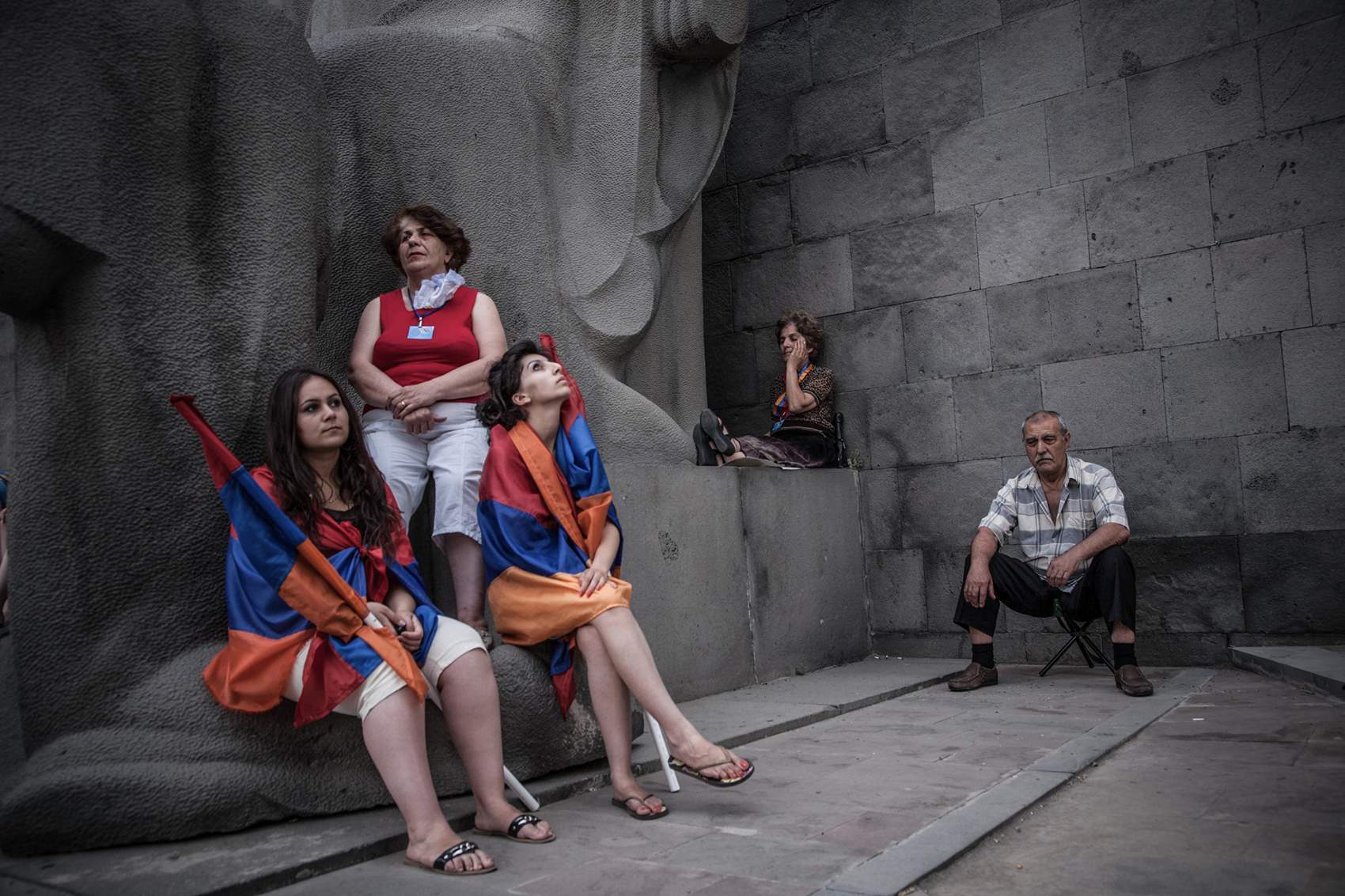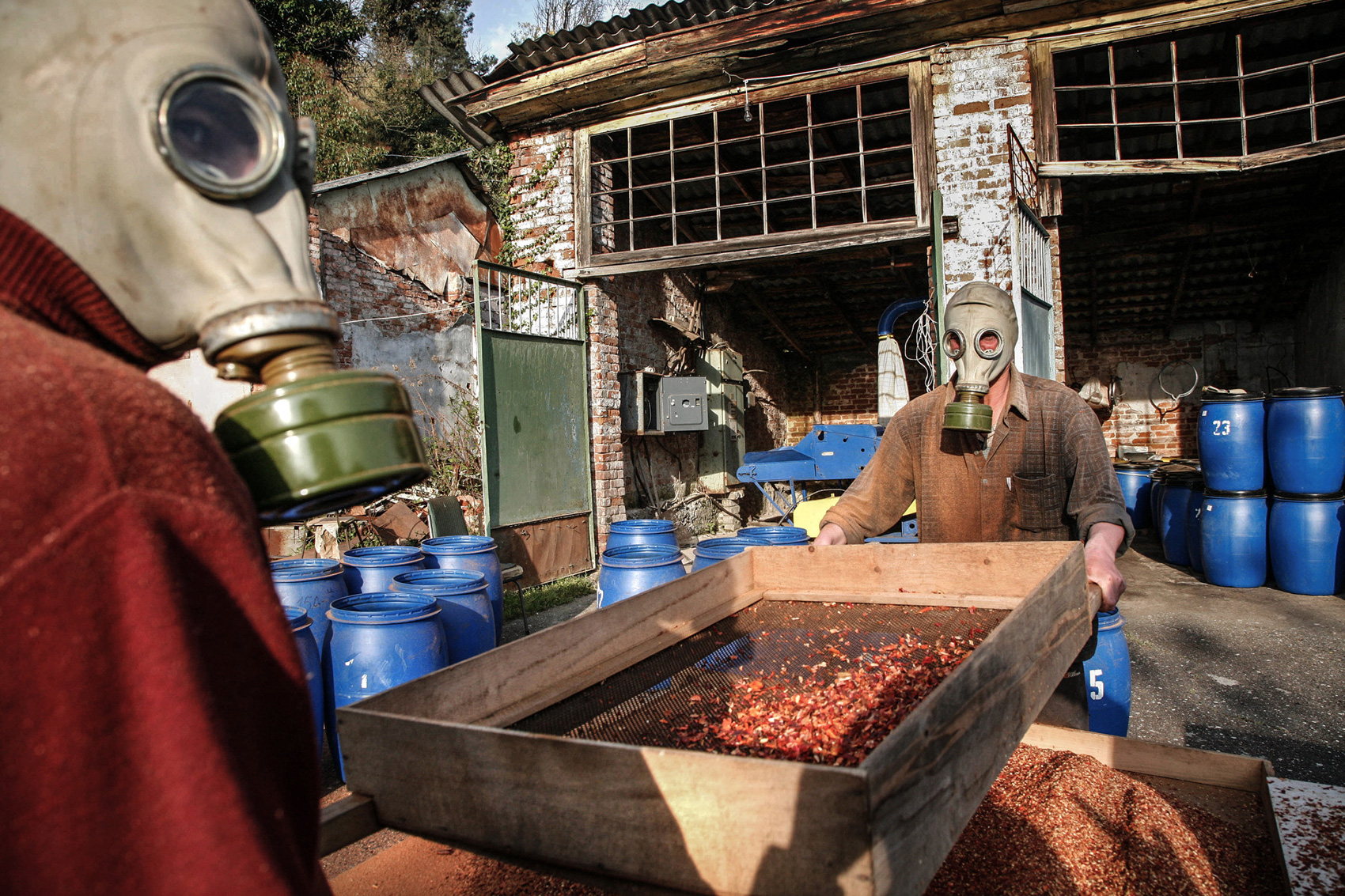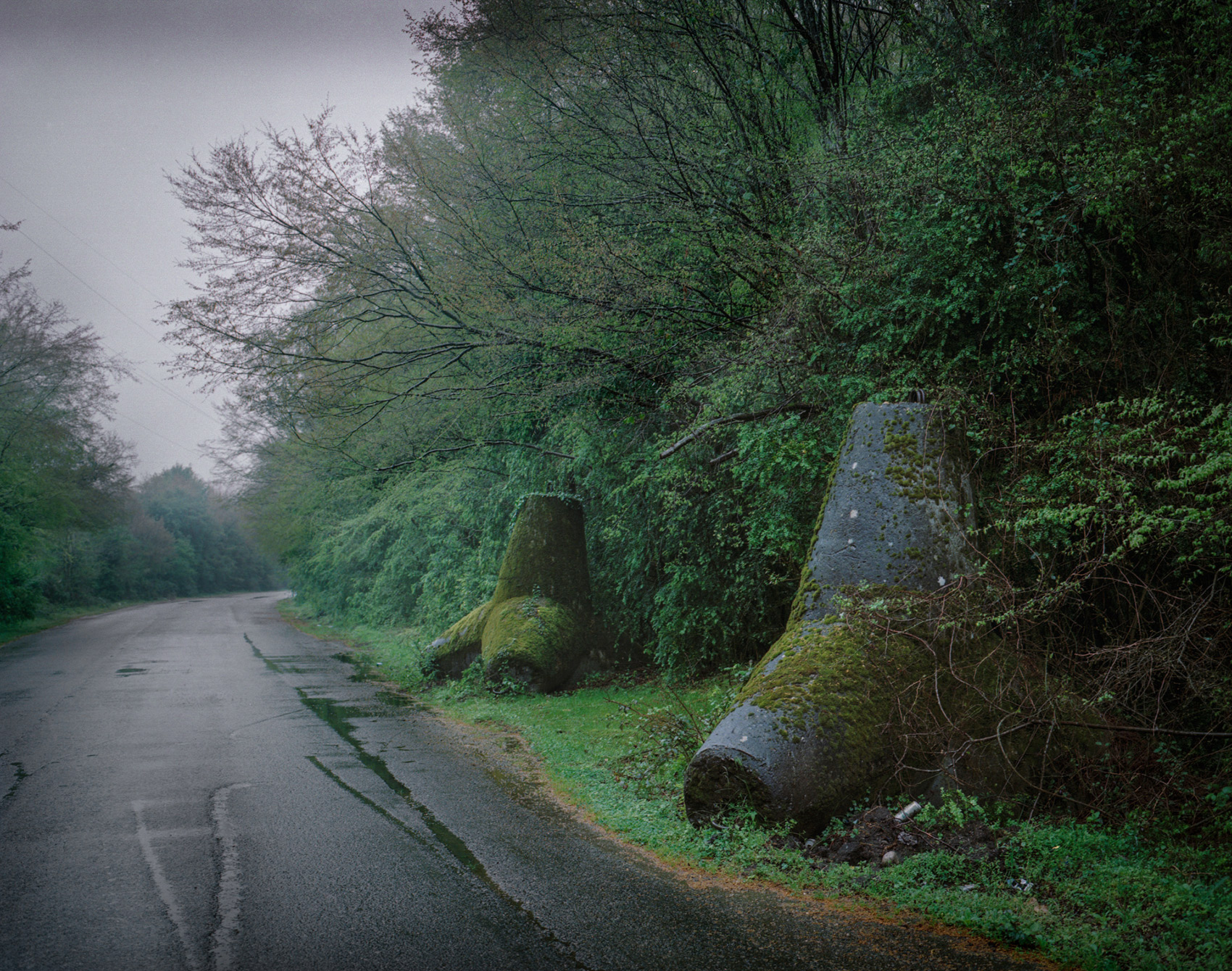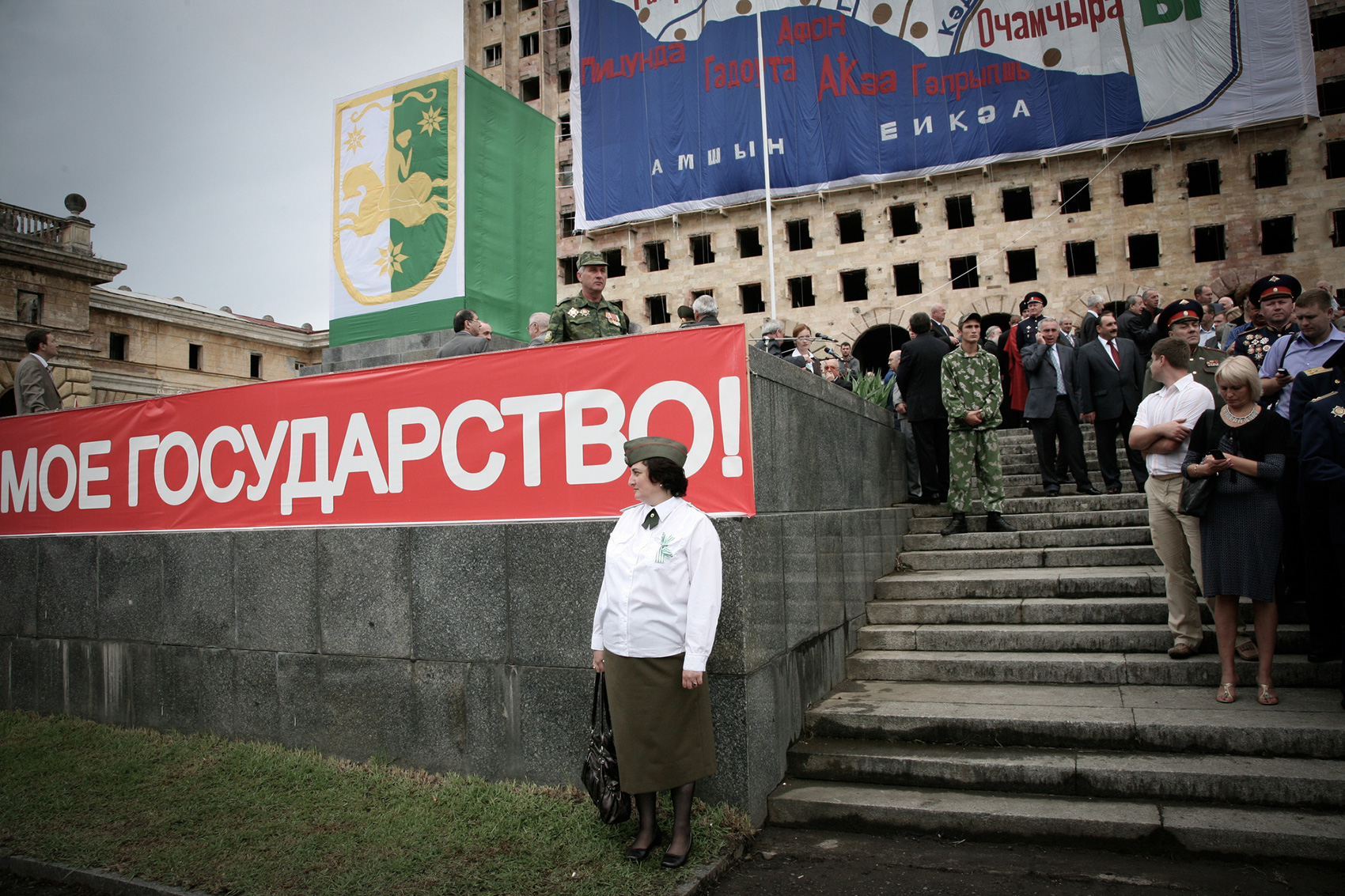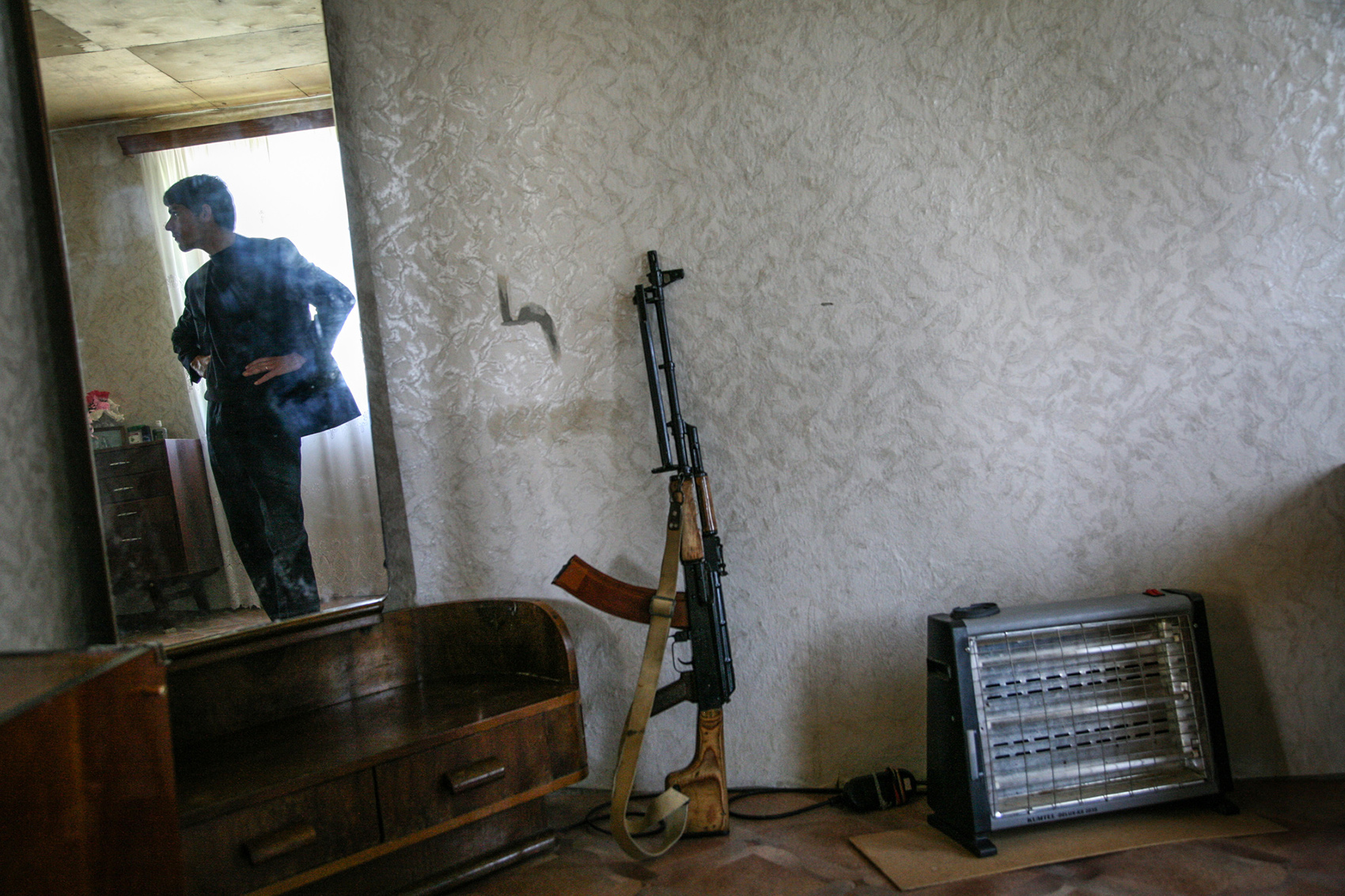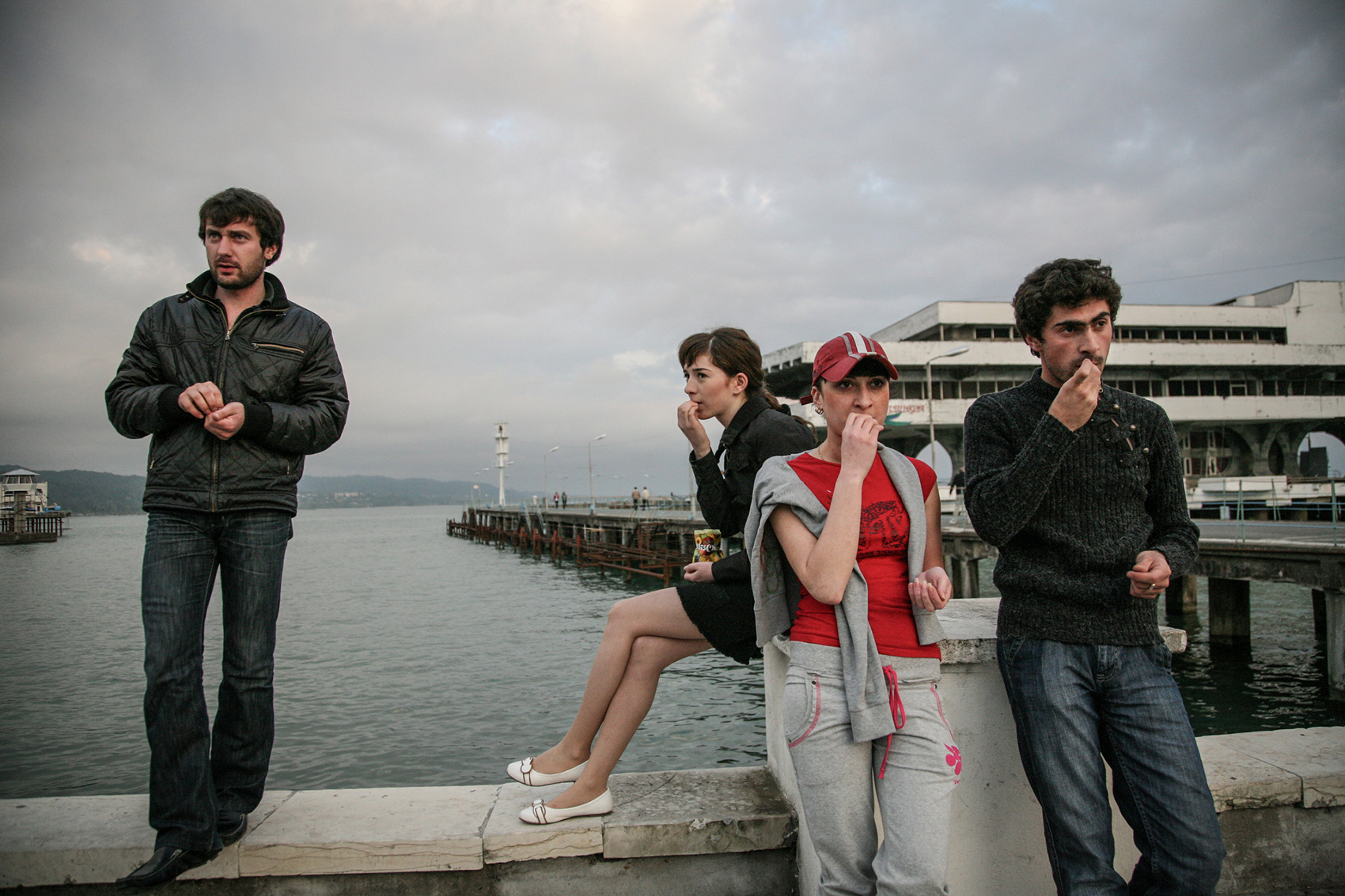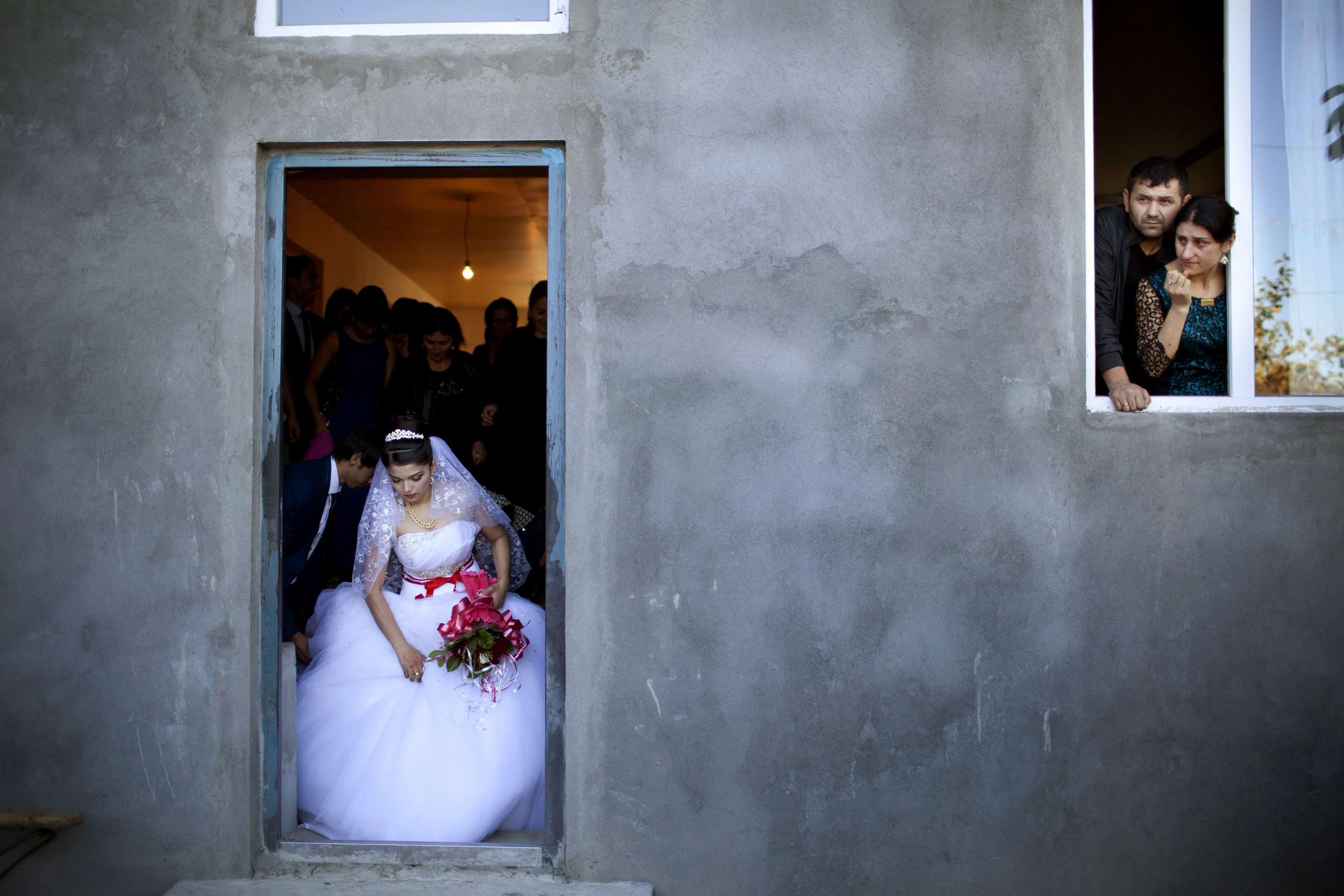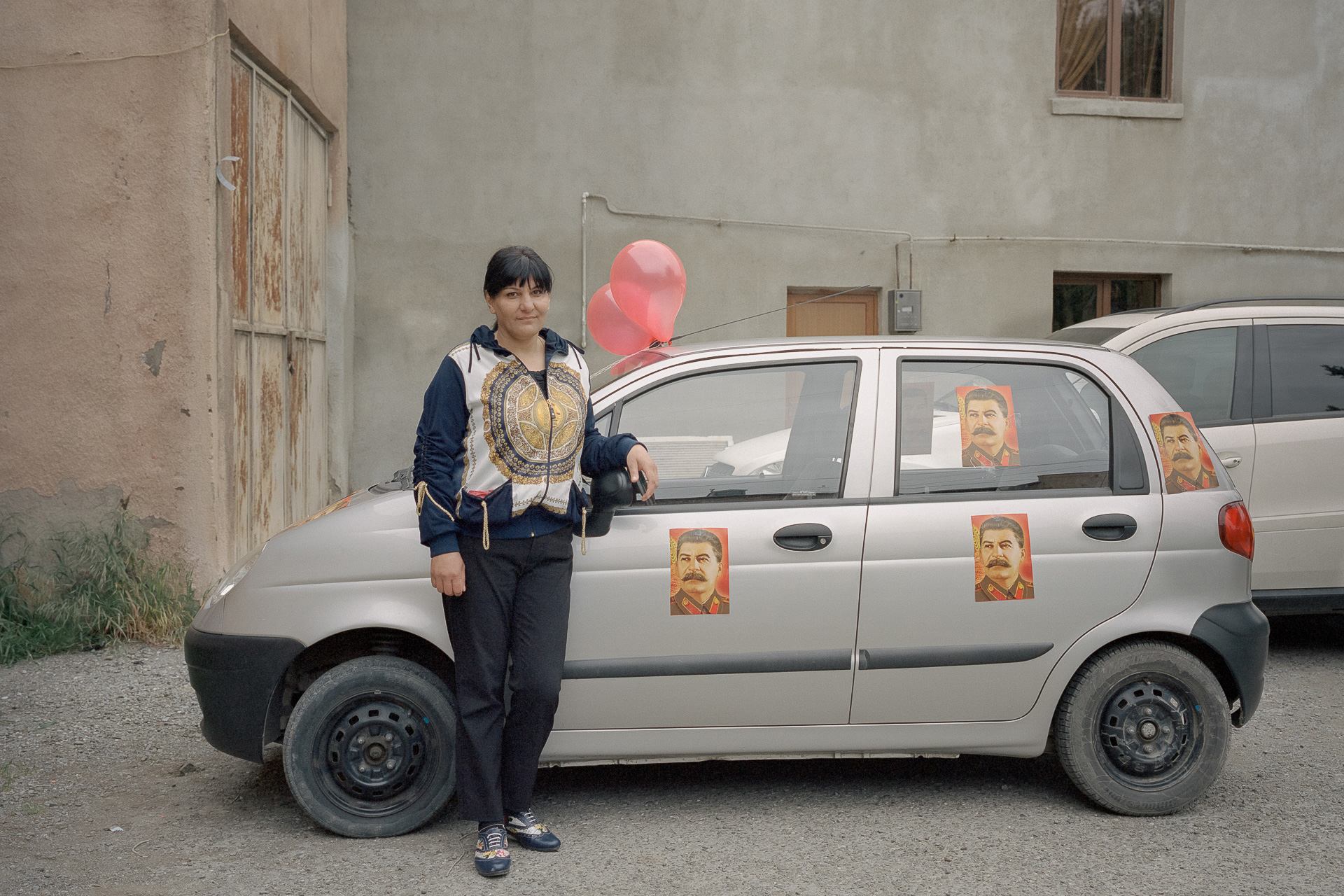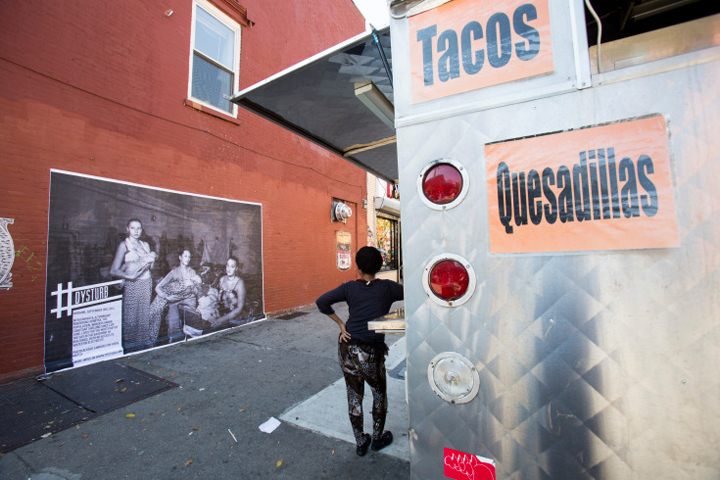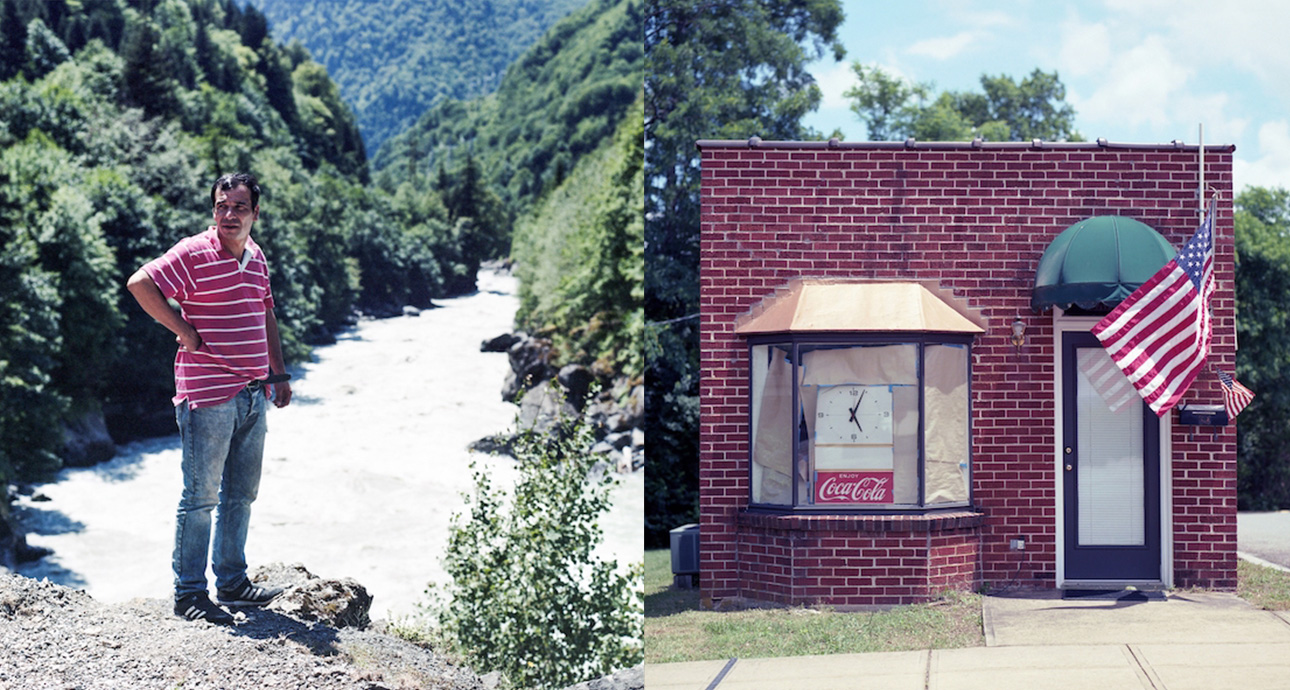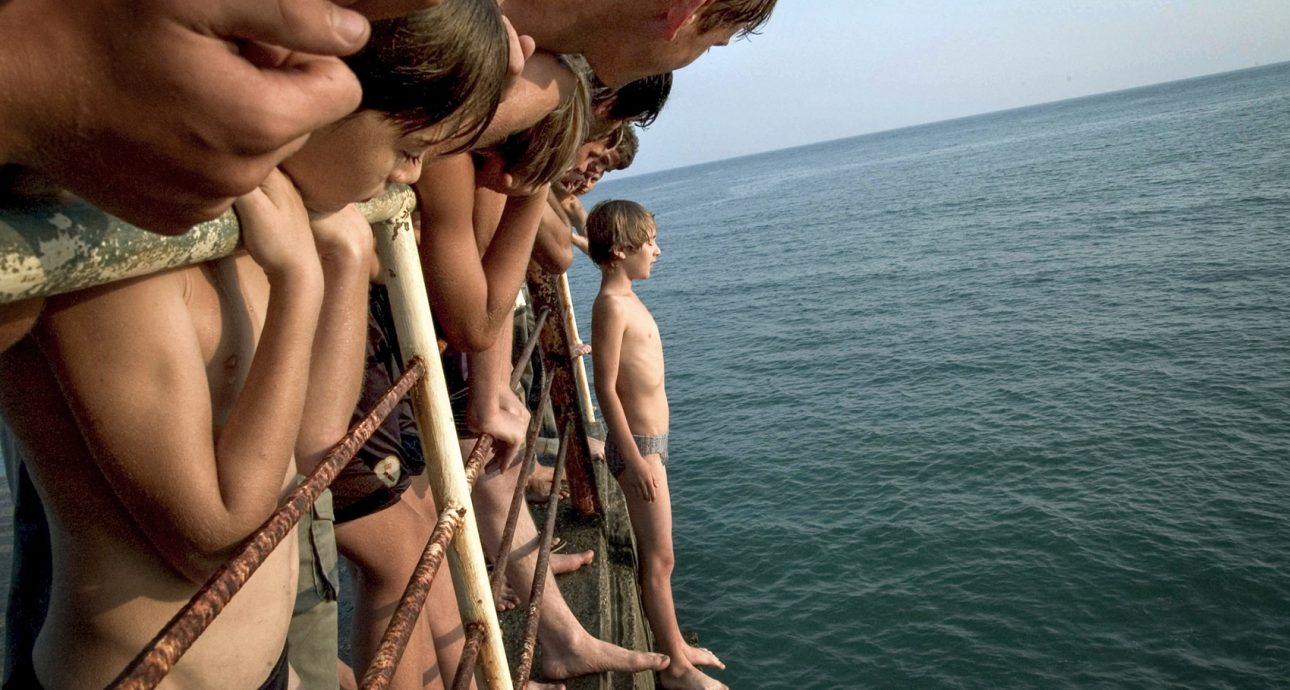
Photographer Justyna Mielnikiewicz: This Is a Prize for Stubbornness

Freelance photographer from Poland, lives in Georgia. Published her works in The New York Times, Newsweek, Eurasianet.org, Monocle, Newsweek International, Marie Claire, GEO France, Stern, National Geographic, and Le Monde. This year, received the grant in Humanistic Photography from W. Eugene Smith Memorial Fund. The jury noted her project called A Diverging Frontier (Russia and Its Neighbors) aimed to study the Russian influence in the former Soviet republics, in particular in Georgia and Ukraine, where she has been working for the past 15 years.
“A Diverging Frontier (Russia and Its Neighbors) is about boundaries; about how the changing spheres of influence interact with the physical borders marked on a map,” Yustyna says. “It documents the life on the edge of Europe, studies the symbols and restored historical facts that helped form national identities.”
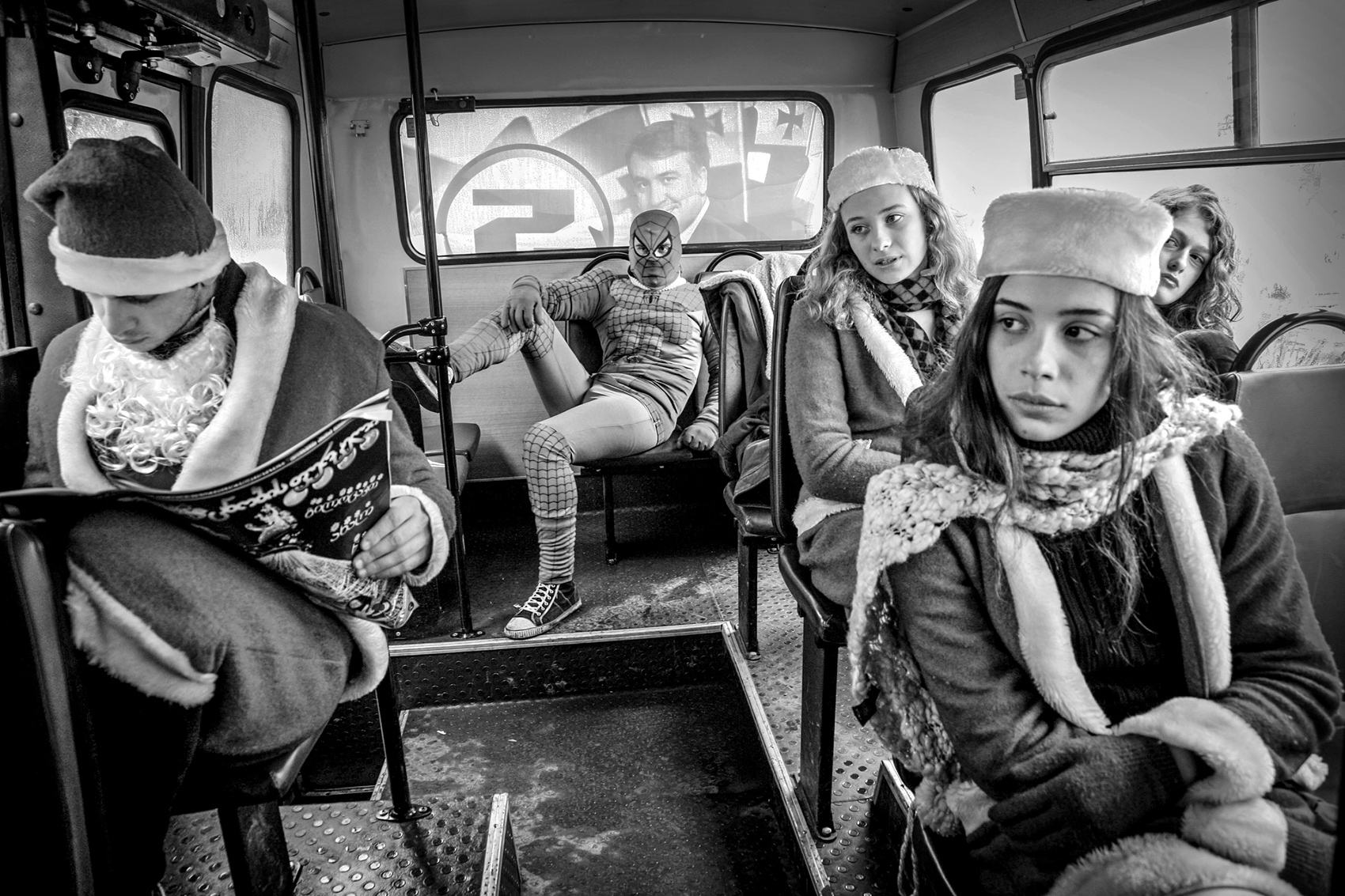
Does the theme of frontiers and separated nations for you originate in your family history?
The parents of my father lived in the villages Tyrawa Woloska and Siemuszowa that according to the Molotov–Ribbentrop Pact went to the Soviet Union (now Poland). My grandfather’s two brothers were immediately drafted into the Soviet Army. They both died (we were told they were MIA) — one in the Caucasus and one in the defense of Kyiv. And when my grandmother was a little over twenty, half of her Polish–Ukrainian family was killed in front of her eyes by people from the Ukrainian Insurgent Army (UPA). In 1947, after Operation Vistula, the Poles put them on a train and resettled them in the Recovered Territories — my father was two months old.
There are people in Poland who say that Banderivtsi are bad and Ukrainians are guilty in everything that was happening then. Ukrainians blame the Polish for Vistula, when all Ukrainians were resettled. And some say that the Soviet Union was the best. There are constant arguments in Ukraine and Poland — who is the nationalist, who was worse, who won, who started it. And my family was punished from all sides. Perhaps that’s why I am interested in the destinies of people who found themselves in the middle of such conflicts.
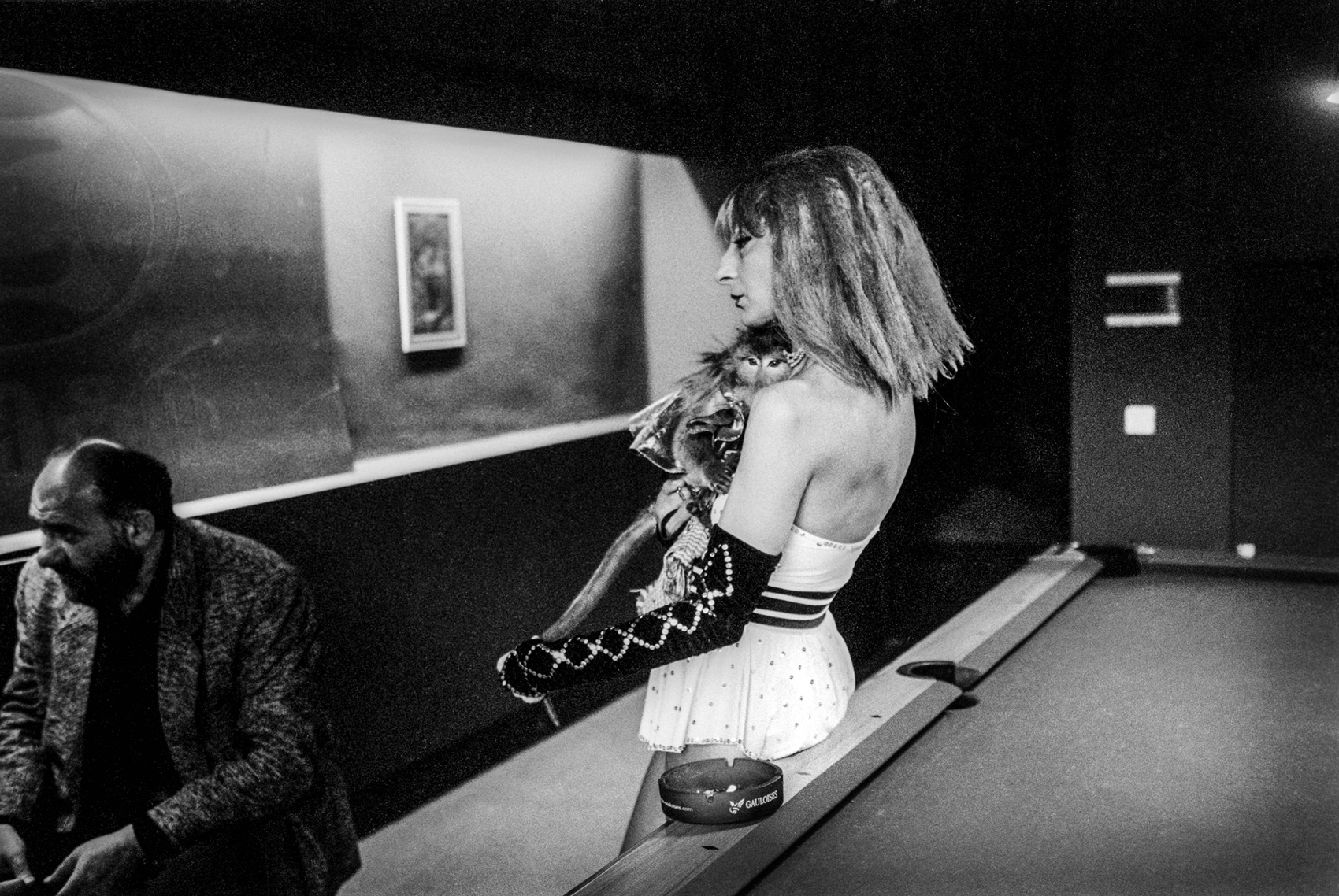
Tell me about the grant.
This is the most prestigious award in documentary photography. When I first heard, I went out to the yard of my home in Tbilisi and started pacing it, sipping chacha and repeating: “This can’t be happening!” This is the award that is given to established documentary photographers. During the award ceremony, they told me I was a photographer with my own artistic language. The New York Times quoted my words that this was a prize for stubbornness, for never giving up and working.
Stubbornness?
I am stubborn. The editors are not interested in my topic? They don’t want my photographs? I’ll photograph so that they would see them and want to take them. I keep telling my students: in photography, you start from scratch every month, for your entire life. It is hard to be a freelancer in post-Soviet space, as it is difficult to sell or exhibit things. And now such an important prize: out of everything that happened in the world and was captured this year, the jury selected my works. I feel that this is my biggest accomplishment: I made people pay attention to post-Soviet territories and conflicts.
What are your plans?
A series about women in post-Soviet countries that I suspended in 2013. I have enough ideas for the future. The prize allows me to feel more free, gives me some time and opportunity to work — finish what will become, in a way, the third chapter of my project (the first two chapters being Caucasus and Ukraine). I hope that the world will be interested and I will be able to share the things that I saw while working on this project with the general public.
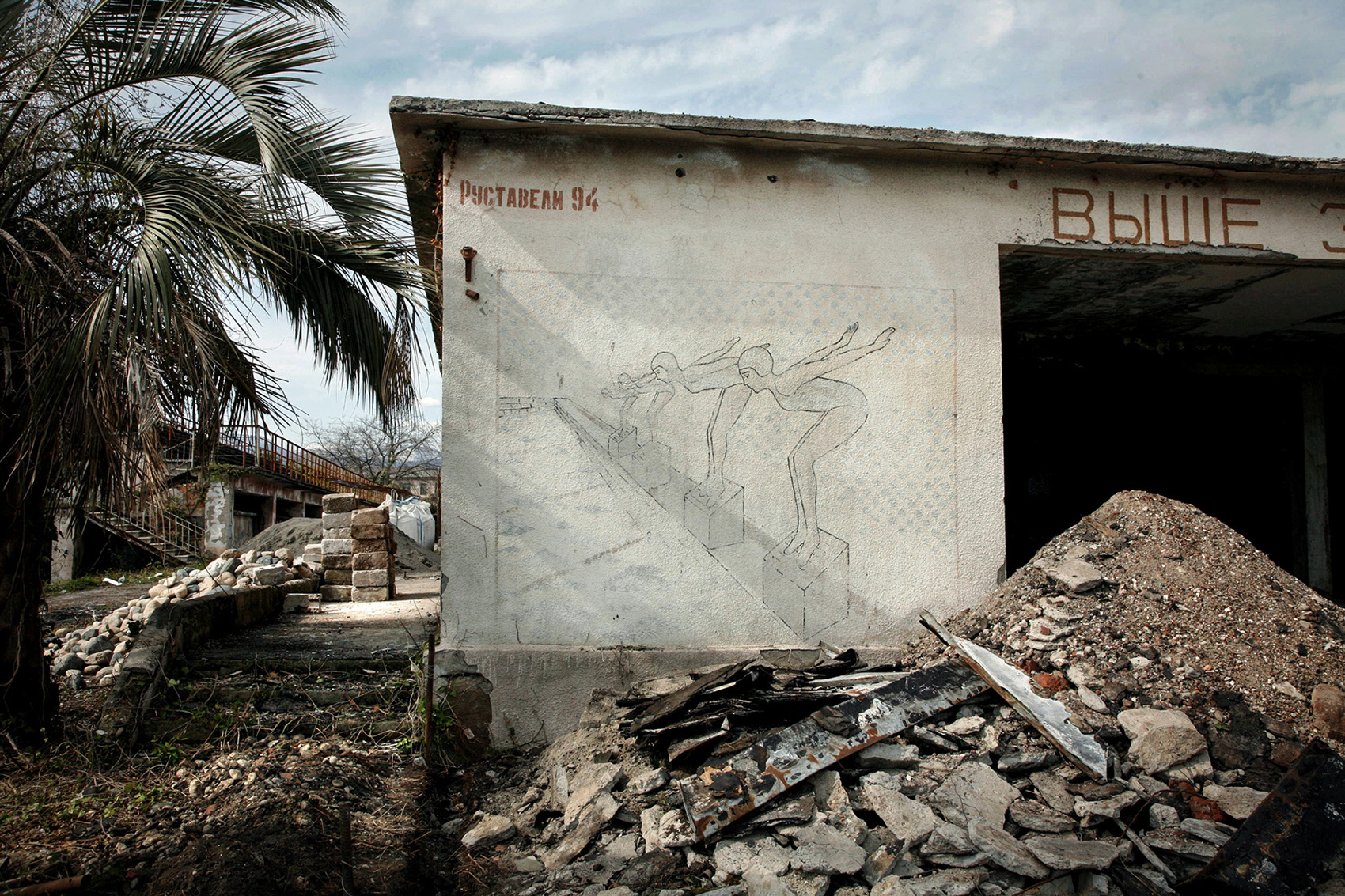
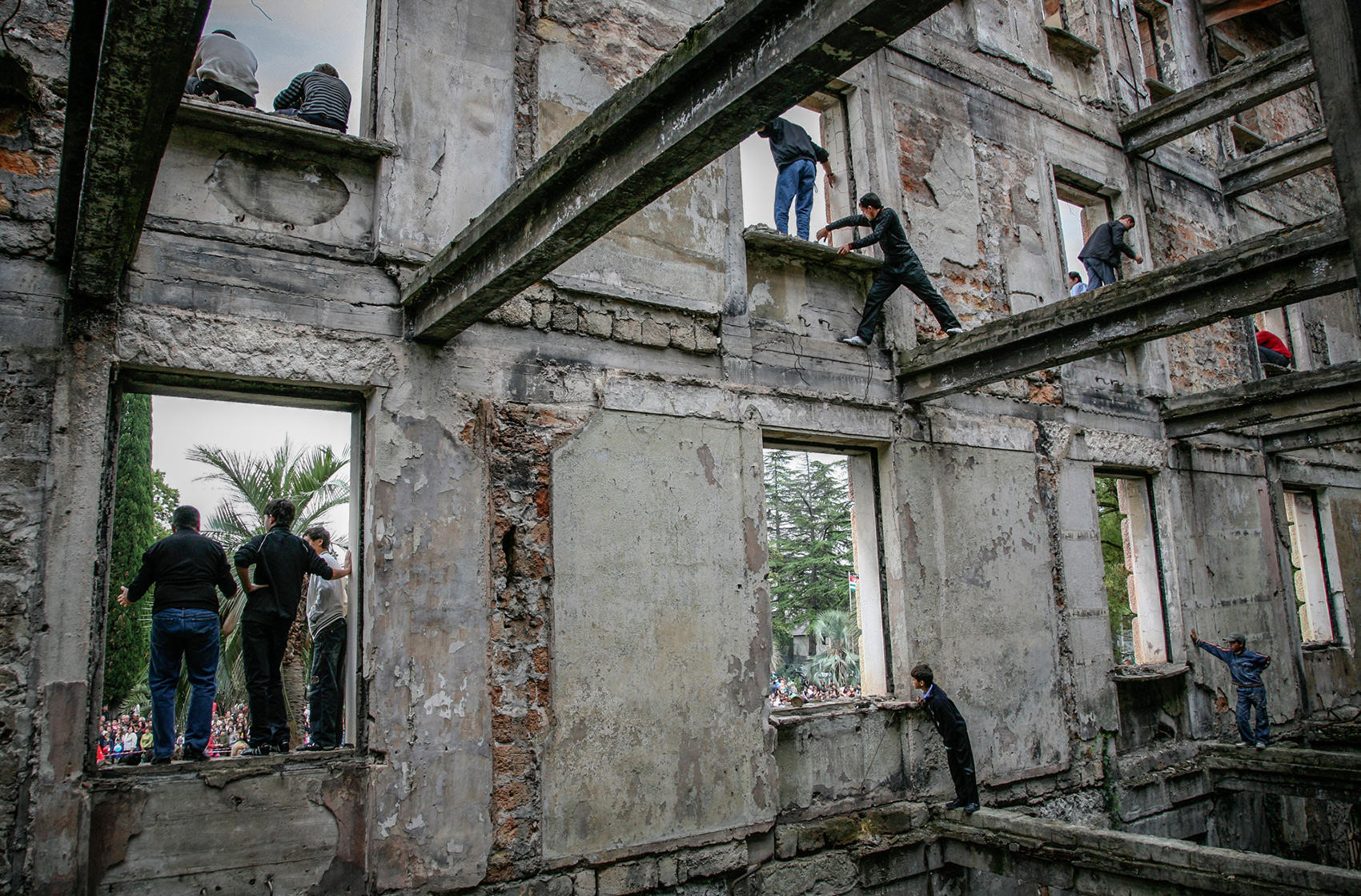
Why did you move to Georgia? Do you like living in Tbilisi?
I have always wanted to go east. I came to Tbilisi and decided that one time I will come for several years and create a photo book about Georgia. I made friends here. I came to Georgia again, and I enjoyed it. In a year, I decided to move to Tbilisi.
I am interested in Ukraine, too. I wanted to do a big project about Ukraine a long time ago, but found neither money, nor interest for this idea. I started my Ukrainian project at the times of the ‘Orange Revolution’, and then in 2008 in Crimea, but decided to continue it with my own funds only in 2014.
My Ukrainian project is done mostly on film. This way I gave myself time: film is slower, it relieves you of the temptation to try to sell the photograph immediately. When you shoot digital, right after the shoot you start thinking whom to write and offer the story. You lose time and effort: your energy goes not into thinking about what you are doing, but into thinking who would buy it.
After a year, thanks to these photographs I won the contest called Aftermath — War Is Only Half the Story, this allowed me to keep shooting. The W. Eugene Smith prize will let me finish my project about life in the former Soviet republics. I have already finished covering the Caucasus and Ukraine, and will now work on covering the lives of ethnic Russians who remained outside Russia after the collapse of the Soviet Union.
Putin is ready to protect Russians, but he is not asking whether they need protection. Russians abroad are very different, depending on the country they live in, one of the Baltic states or Kazakhstan, the family they grew up in and many other factors. In this project, I want to also pay attention to the Russians who decided or had to leave their homeland and chose to go to Ukraine.
New and best
